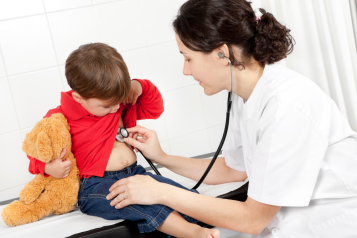Reconfiguration of Children’s Cancer Principal Treatment Centre

Background
The presentation detailed the current situation where 70% of care was being delivered at the Royal Marsden and 30% at St. George’s with children being moved to St George’s if they became very ill during the course of treatment or if clinical staff felt there was a heightened risk of this happening. It also detailed the number of cases seen across South West London and Surrey which saw around 1 child in 6,200 diagnosed with cancer each year. In total, the Principal Treatment Centre (currently the Royal Marsden Hospital), treats around 1,400 children per year. Of these, just under 500 children were from South West London and Surrey in 2019/20.
Case for change
The new national specification for children’s cancer Principal Treatment Centres published in November 2021 required that all Principal Treatment Centres must be on the same site as a children’s intensive care unit and other specialist children’s services. The Royal Marsden Hospital does not have these additional services. Therefore, there two options have been proposed for the relocation of the Principal Treatment Centre:
- Evalina Children’s Hospital run by Guy’s and St Thomas’ NHS Foundation Trust and based on the St Thomas’ site by Westminster Bridge; and
- St. George’s Hospital run by St George’s University Hospitals NHS Foundation Trust based in Tooting.
An independent evaluation of both options had been undertaken. The Evalina Children’s Hospital had scored higher than St George’s Hospital and so the NHS commissioners were likely to express a preference for the Evalina Children’s Hospital bid based on this however they emphasised that weight would also be given to the responses received through consultation. The bids had been judged on four criteria:
1. ‘Quality and Outcomes’ in which the Evalina Children’s Hospital had been judged as being superior.
2. ‘Patient Experience’ in which St George’s Hospital was judged as being superior.
3. ‘Enabling’ in which both hospitals were found to be equally able.
4. ‘Research’ in which the Evalina Children’s Hospital was found to be superior. The ratings for ‘Quality and Outcomes’ and ‘Patient Experience’ were weighted more heavily than the ratings for ‘Enabling’ and ‘Research’.
The ratings for ‘Quality and Outcomes’ and ‘Patient Experience’ were weighted more heavily than the ratings for ‘Enabling’ and ‘Research’.
Case study
A representative from a group made up of parents and guarding of current patients addressed the Committee and detailed that she had been part of the process since it began in 2019. She expressed her concern around transport, particularly if the service moved to the Evalina Children’s Hospital as travelling with a sick child undergoing treatment was very difficult and taking public transport was unrealistic. She also stated that the group were not convinced by the case for change and currently the transport of children was rare and done with the assistance of a full clinical team. She also felt the consultation process thus far had been poor and their feedback had not been taken into account.
The Committee expressed their concern that parents felt they were not being included or heard and that they had found the engagement distressing. It was noted that the current service was not fit for purpose and therefore ‘do nothing’ was not an option and acknowledged that this was painful for those with an existing relationship with the Royal Marsden. It was also noted that the timeline meant current patients would either be in recovery or in outpatient care but that their lived experience and their opinions were very important.
Regarding transport, it was noted that the Royal Marsden had not systematically collected data on transport methods used by patients and therefore this data was not currently available. However, it was highlighted that some parts of the catchment had very low car ownership so public transport could not be discounted. The Committee recommended that data be produced on modes of transport, how many trips families were making, how often, and at what point in their journey. The Committee also recommended that the impact of journeys on patients with different needs also be considered. Members stressed that there were nuances in how people travelled, it was not just private car or public transport.


